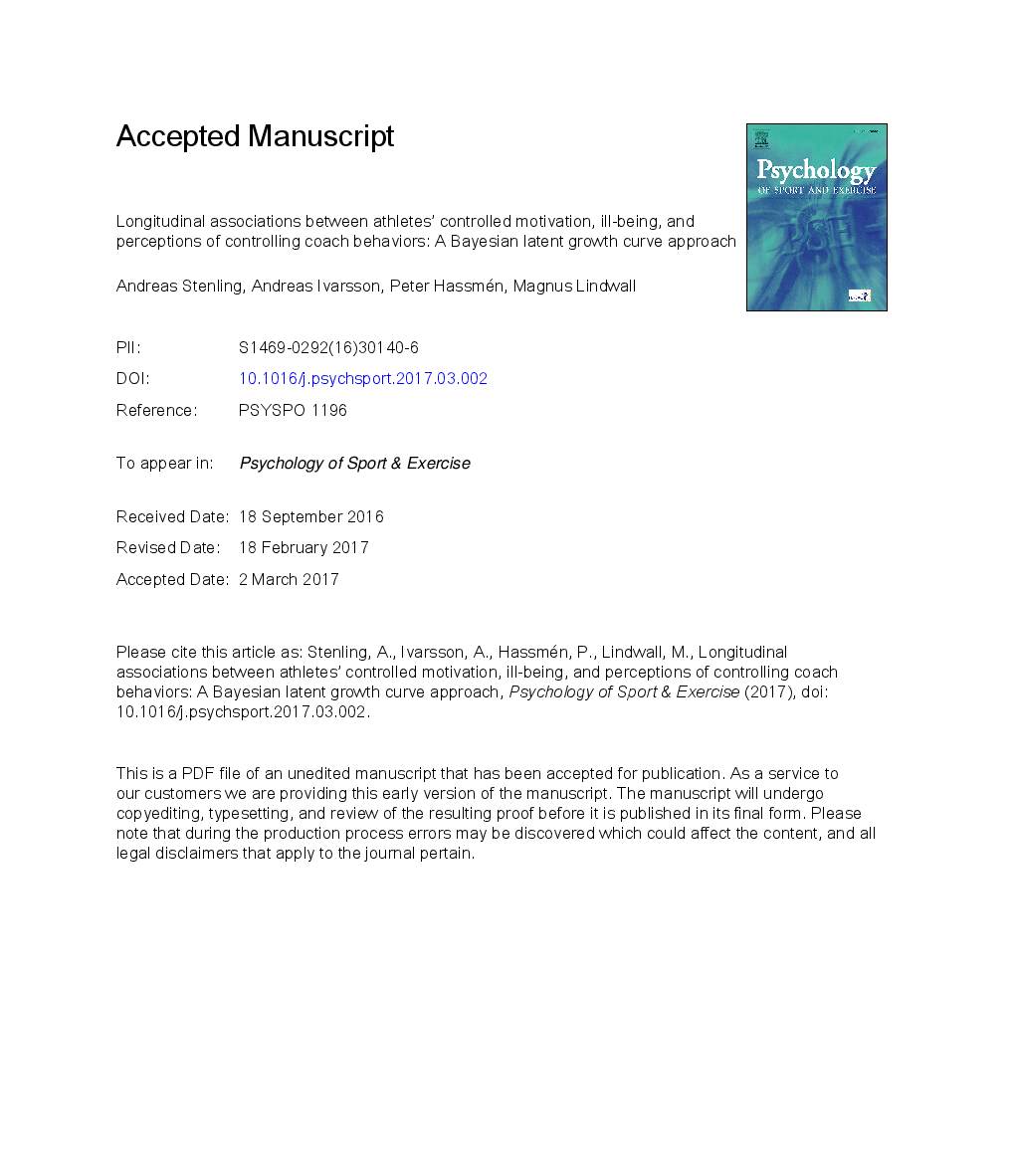ترجمه فارسی عنوان مقاله
ارتباط طولی بین انگیزه کنترل شده ورزشکاران، بدبینی و ادراکات کنترل رفتار مربیان: رویکرد منحنی رشد پنهان بیزی
عنوان انگلیسی
Longitudinal associations between athletes' controlled motivation, ill-being, and perceptions of controlling coach behaviors: A Bayesian latent growth curve approach
| کد مقاله | سال انتشار | تعداد صفحات مقاله انگلیسی |
|---|---|---|
| 121538 | 2017 | 37 صفحه PDF |
منبع

Publisher : Elsevier - Science Direct (الزویر - ساینس دایرکت)
Journal : Psychology of Sport and Exercise, Volume 30, May 2017, Pages 205-214
ترجمه کلمات کلیدی
برآورد بیزی، افسردگی / اضطراب، مدل های رشد، کنترل بین فردی، رهبری، ورزش ها،
کلمات کلیدی انگلیسی
Bayesian estimation; Depression/anxiety; Growth models; Interpersonal control; Leadership; Sports;

